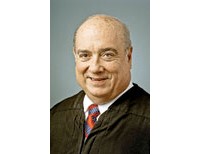Advertisement
Grab your lab coat. Let's get started
Welcome!
Welcome!
Create an account below to get 6 C&EN articles per month, receive newsletters and more - all free.
It seems this is your first time logging in online. Please enter the following information to continue.
As an ACS member you automatically get access to this site. All we need is few more details to create your reading experience.
Not you? Sign in with a different account.
Not you? Sign in with a different account.
ERROR 1
ERROR 1
ERROR 2
ERROR 2
ERROR 2
ERROR 2
ERROR 2
Password and Confirm password must match.
If you have an ACS member number, please enter it here so we can link this account to your membership. (optional)
ERROR 2
ACS values your privacy. By submitting your information, you are gaining access to C&EN and subscribing to our weekly newsletter. We use the information you provide to make your reading experience better, and we will never sell your data to third party members.
Biological Chemistry
FDA Clears Stem Cell Clinical Trial
Testing in humans is a milestone in a field fraught with controversy
by Britt E. Erickson
January 26, 2009

The Food & Drug Administration has given Geron, a small California-based biotech company, the green light to inject living cells manufactured from human embryonic stem cells into a handful of patients with spinal cord injuries.
The trials, set to begin this summer, will be the first in the world to test the safety of a therapy derived from human embryonic stem cells in people.
A lot of hope is riding on the outcome of the trials. If the product, called GRNOPC1, proves safe, it could open the door for other embryonic stem cell-based therapies to treat conditions such as juvenile diabetes, cancer, multiple sclerosis, and stroke, according to those in the field.
FDA's decision "marks the dawn of a new era in medical therapeutics," Thomas B. Okarma, president and CEO of Geron, said during a teleconference briefing. GRNOPC1 is intended to "permanently reverse disease pathology, not merely to temporarily relieve symptoms," he noted. The therapy has been shown to repair myelin, or insulation, around nerve cells and to stimulate nerve fibers of laboratory animals with spinal cord injuries, thereby leading to restoration of function, Okarma said.
Geron's announcement marks a new chapter in the history of embryonic stem cell research, which has been fraught with controversy over to how to create highly purified products from cells that can turn into any type of human cells, says Michael West, founder of Geron and CEO of BioTime and its subsidiary Embryome Sciences, companies that focus on human embryonic stem cell technologies. The first-generation approaches led to a lot of skepticism about the purity and reliability of such therapies, he notes.
The biotech industry and those hoping the Obama Administration will repeal the current limitation on federal funding for embryonic stem cell research are welcoming the news.
"Today's news about Geron's embryonic stem cell clinical trials is a milestone in this new era of hope and adds to the momentum for policy change when it comes to embryonic stem cell research," Amy Comstock Rick, president of the Coalition for the Advancement of Medical Research, said in a statement. CAMR is pushing for Congress to pass legislation that would provide federal funding and government oversight of embryonic stem cell research.




Join the conversation
Contact the reporter
Submit a Letter to the Editor for publication
Engage with us on Twitter